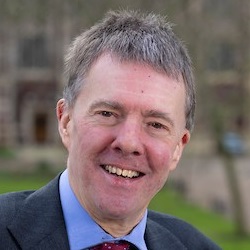
Neale: Barristers bound by higher standards
Barristers must be “circumspect” in exercising their free speech when speaking about controversial matters, the director general of the Bar Standards Board (BSB) has said.
His comments sparked a response from the shadow Attorney General, Lord Wolfson KC, who suggested that the BSB should be circumspect in what it said as well.
Mark Neale’s blog on the BSB website comes in the wake of its failed prosecution of Charlotte Proudman, who a Bar disciplinary tribunal found in December had no case to answer over tweets she sent criticising a judge’s ruling.
Mr Neale stressed the importance of free speech but said professional people were “bound by higher standards than the general public” and had to think about the potential impact of how they exercise their right.
“I see no intrinsic problem with individual barristers making public statements about controversial public policy matters. But that does not mean that barristers, and indeed other professionals, have complete license.”
The right to freedom of expression under article 10 of the European Convention on Human Rights “is, after all, qualified by the need to balance other rights”, he pointed out.
Mr Neale argued that professionals “must take care not to undermine public confidence in their own profession”, meaning barristers “should think carefully about statements which might compromise the integrity of the justice system”.
Second, professionals “must sustain the confidence of the public to whom they provide services”, with barristers under a duty not to discriminate and subject to the cab-rank rule.
“This does certainly not mean that barristers and clients must always see eye to eye. Nor does it mean that barristers cannot express views with which some (or even many) clients may disagree or which they may even find offensive.
“It does, though, mean, I think, that barristers should not express views in such a way as to give citizens of particular backgrounds or views legitimate grounds for doubting their or the profession’s ability to represent them effectively and dispassionately.”
Mr Neale said the BSB’s social media guidance, published in September 2023, encapsulated these questions.
Individual cases would always turn on their own facts: “How far was a barrister speaking in his or her professional capacity or, at least easily identifiable as a barrister? How far were the views expressed political in nature (where we should allow more latitude)?
“Above all, how intemperate was the expression of the views and with what potential impact on public confidence in the profession and in the justice system?
“Whether a line has been crossed into a potential breach of the BSB Handbook will always be matters of judgement for the regulator taking into account the law, including caselaw developments in this area.
“But barristers too must exercise judgment when speaking or writing publicly on controversial matters. Professionalism carries responsibilities as well as rights.”
Responding on X, Lord Wolfson – who practises from One Essex Court – said that Mr Neale “should have started from the proposition that barristers – like everyone else – have free speech rights (and we don’t need [the BSB] to bestow such rights)”.
“But he refers to freedom of expression under article 10 only in the context of its restrictions. And note the weasel word ‘intrinsic’ – which he never explains but leaves hanging as an implied but imprecise limitation on public statements…
“I agree that – sometimes – barristers should be ‘circumspect’ about what they say in public. But that applies to regulators, too. And unless it’s going to be more muscular about protecting free speech, [the BSB] might well reflect that – sometimes – saying nothing is the better option.”
Dr Proudman also weighed in on X, asking about the impact on public confidence of male barristers abusing her – she has frequently complained about the BSB taking no action over such instances.
She continued: “The regulator selectively enforces its rules—protecting male perpetrators instead of holding them accountable, while targeting women who dare to challenge the status quo. This isn’t regulation. It’s institutional misogyny.”
Jon Holbrook, a barrister who in 2022 successfully challenged a BSB sanction over a tweet he sent about Muslims, wrote on X that the BSB saw free speech as a problem to be managed, rather than a quality to be “cherished”.
“Under Mark Neale’s leadership, [the BSB] has waged an ideological war against barrister heretics like me & Dr Proudman.”
The blog, he argued, was “an attempt to cow the profession into meekness”.














Leave a Comment